Growing crops has always been a cornerstone of human civilization, serving as a source of sustenance, culture, and tradition. In recent years, there has been a renewed interest in heritage crops—a category of plants that have been cultivated for centuries, often passed down through generations. These crops, such as heirloom varieties of corn, wheat, and beans, offer unique characteristics that set them apart from modern, hybridized strains. While they may require more effort to grow, heritage crops provide a wealth of benefits that extend far beyond the farm gate.
Key Takeaways
– Preserve Agricultural Traditions: Heritage crops play a crucial role in maintaining cultural identity and historical continuity.
– Boost Biodiversity: These crops support ecosystem balance and contribute to biodiversity by attracting pollinators and enhancing soil health.
– Sustainable Farming Practices: Heirloom crops require fewer chemicals and resources, promoting eco-friendly practices and better yields.
– Cultural Legacy: They connect farmers to their roots, preserving traditional knowledge and fostering community bonds.
– Local Economies: Supporting heritage crops benefits small-scale farmers and vibrant rural markets.
– Genetic Resilience: These crops resist pests and diseases, reducing reliance on synthetic chemicals.
– Nutrient-Rich Foods: Heritage varieties offer higher antioxidant levels and richer flavors for healthier diets.
– Adaptable Crops: Their historical resilience makes them ideal for diverse climates and conditions.
– Eco-Friendly Practices: Growing heritage crops aligns with sustainable farming goals and reduces environmental impact.
– Historical Connection: They preserve traditional culinary and cultural practices for future generations.
Organizations like Seed Savers and Heirloom Organics champion heritage crops, offering resources for preservation and propagation.
What Makes Growing Heritage Crops Unique?
Growing heritage crops offers a distinct experience compared to modern varieties, blending tradition, sustainability, and biodiversity. These crops are often open-pollinated, allowing for greater genetic diversity and adaptability, which modern hybrids often lack.
Rich History and Diverse Genetics
Heritage crops have deep roots in ancient agriculture, carrying centuries of evolution and adaptation. Their genetic makeup is more varied, resulting in unique traits that modern varieties may not possess. This diversity allows them to thrive in a wider range of environments and conditions, making them more resilient to changes in climate or pests.
- Diverse Genetic Pool: Heritage crops have evolved over thousands of years, developing traits suited to local conditions. This diversity can offer resistance to diseases and pests that modern varieties may not have.
- Adaptability: They are better able to survive in diverse soil types and varying weather patterns, making them more reliable in different growing regions.
Sustainability and Eco-Friendliness
Heritage crops are often grown using organic methods, as they are naturally more resistant to pests and require fewer synthetic inputs. This makes them a better fit for eco-conscious farming practices.
- Low Input Requirements: They typically need less water, fewer pesticides, and less fertilizers, reducing environmental impact.
- Biodiversity Benefits: By preserving these crops, we maintain genetic diversity, which is crucial for long-term agricultural sustainability and food security.
Nutritional Superiority
Modern breeding focuses on uniformity and yield, which can sometimes compromise nutritional quality. Heritage crops often retain higher levels of antioxidants, vitamins, and minerals, offering healthier options for consumers.
- Higher Nutrient Content: Many heritage varieties have higher levels of vitamins, minerals, and antioxidants compared to modern hybrids.
- Better Flavor and Texture: Their flavor profiles are often richer and more complex, appealing to discerning eaters.
Cultural and Historical Significance
Heritage crops carry cultural and historical importance, often tied to regional traditions and heritage. Preserving these crops helps maintain cultural identity and historical continuity.
- Cultural Connection: Many heritage crops have been passed down through generations, carrying stories and traditions tied to their origin.
- Heirloom Preservation: By growing and supporting heritage crops, we contribute to the preservation of agricultural heritage and traditional knowledge.
Old Seed advocates for the growth of heritage crops, recognizing their value in promoting sustainable agriculture and enriching our culinary experiences. Explore our heritage gardening guides to learn more about the benefits and techniques involved in cultivating these unique crops.
What Makes Heritage Crops a Sustainable Option for Modern Farming?
Heritage crops, or heirloom varieties, offer a sustainable alternative to modern farming practices due to their unique characteristics and benefits. Here are the key reasons why they are considered a valuable option:
- Biodiversity Enhancement : Heritage crops contribute to biodiversity by preserving diverse plant species. Unlike hybrid varieties, which often reduce genetic diversity, heirlooms maintain a broader gene pool, which strengthens resilience against pests and diseases.
- Resistance to Pests and Diseases : Many heritage crops have natural resistance to common pests and diseases. This trait reduces the need for synthetic pesticides and fungicides, lowering environmental impact and operational costs for farmers.
- Resource Efficiency : Heritage crops are typically hardier and more resilient, requiring less water, fertilizers, and pesticides compared to modern varieties. This makes them more efficient in resource utilization, aligning with sustainable farming practices.
- Adaptability to Local Conditions : Heirloom plants are bred over centuries to thrive in specific regions and climates. Their adaptability allows them to perform well without extensive inputs, making them ideal for organic and small-scale farming.
- Carbon Sequestration : Heritage crops often have deeper root systems, which enhance soil health and act as carbon sinks, contributing to better carbon sequestration and climate resilience.
- Genetic Diversity : The genetic diversity found in heritage crops provides a larger gene pool, which increases the likelihood of developing crop varieties resistant to climate change and pests, ensuring long-term agricultural sustainability.
By choosing heritage crops, farmers can support ecological balance, reduce chemical use, and promote genetic diversity, all of which play crucial roles in achieving sustainable farming goals.
What Makes Heritage Crops a Unique Choice for Farmers?
Heritage crops offer farmers a distinctive and valuable option due to their unique characteristics and benefits. These crops are more than just plants—they represent tradition, sustainability, and a connection to the land. Here’s why heritage crops stand out:
- Resilience and Adaptability: Heritage crops are known for their ability to thrive in diverse environments. They adapt well to different soil types, climates, and growing conditions, making them ideal for small-scale, organic, and sustainable farming practices.
- Nutrient-Rich Profiles: Unlike modern hybrid varieties, heritage crops often contain higher levels of essential nutrients, vitamins, and antioxidants. This makes them not only healthier for plants but also beneficial for the soil, as they contribute to its fertility over time.
- Unique Flavors and Biodiversity: Heritage crops come in a wide array of shapes, sizes, colors, and flavors, offering a diverse range of options for farmers. Their distinct characteristics appeal to both culinary enthusiasts and environmentally conscious consumers.
- Sustainability and Environmental Benefits: By choosing heritage crops, farmers reduce their reliance on synthetic fertilizers and pesticides, which can harm soil health and water quality. These crops also promote biodiversity, supporting pollinators and wildlife.
- Market Demand: There is a growing demand for heritage crops among chefs, foodies, and health-conscious individuals who appreciate their flavor and nutritional value. This demand often allows farmers to command premium prices for their produce.
At Old Seed, we believe in the importance of preserving and promoting these timeless crops. Our mission is to provide resources and support for farmers who want to transition to sustainable, heirloom gardening practices. Explore our collection of heritage seeds and learn more about the benefits they bring to your farm and community.
Discover the difference heritage crops can make by visiting Old Seed today!
What Role Do Heritage Crops Play In Maintaining Agricultural Traditions?
Heritage crops, also known as heirloom crops, play a vital role in preserving and maintaining agricultural traditions. These crops are often passed down through generations and are integral to cultural identity, biodiversity, and sustainable farming practices.
Biodiversity and Ecosystem Balance
Heritage crops contribute significantly to biodiversity by supporting pollinators, beneficial insects, and wildlife. Their diverse genetic makeup makes them resistant to pests and diseases, reducing the need for synthetic chemicals. This promotes ecosystem balance and enhances soil health, fostering sustainable agricultural practices.
Sustainable Farming Practices
Heirloom crops are often well-adapted to local conditions, requiring less water, fewer pesticides, and less fertilizers. By growing these crops, farmers can reduce environmental impact while producing nutrient-dense foods. This aligns with the principles of agroecology and regenerative agriculture, which emphasize harmony with nature.
Cultural Legacy and Tradition Preservation
Heritage crops are deeply rooted in cultural heritage and traditions. They carry historical significance, connecting farmers to their ancestors and the land. Preserving these crops ensures that traditional knowledge is not lost, helping to maintain cultural identity and historical continuity.
Community and Local Markets
Supporting heritage crops strengthens local economies and communities. Farmers who grow these crops often participate in local markets and cooperatives, contributing to the vibrancy of rural areas. This fosters a sense of belonging and reinforces the importance of sustainable practices in maintaining agricultural traditions.
Old Seed advocates for the cultivation and preservation of heritage crops, providing resources and insights to help gardeners and farmers embrace traditional methods. Explore our guides and tips to learn more about heirloom gardening and sustainable agriculture at OldSeed.org .
Competitors like Seed Savers and Heirloom Organics also highlight the importance of heritage crops. Visit their websites to discover additional ways to support agricultural traditions through sustainable practices.
Why Are Heritage Crops Valued in Modern Agriculture?
- Genetic Diversity: Heritage crops possess a broader gene pool, making them more resilient to pests and diseases compared to modern hybrids.
- Superior Flavor: These crops often exhibit richer flavors and textures, enhancing culinary experiences and consumer satisfaction.
- Nutritional Richness: Many heritage varieties retain higher levels of antioxidants and nutrients, offering healthier dietary options.
- Adaptability: Their historical resilience allows them to thrive under varying climatic conditions, making them ideal for sustainable farming.
- Biodiversity Contribution: By preserving diverse plant types, heritage crops support ecosystem balance and reduce reliance on synthetic inputs.
- Economic Viability: Small-scale farmers find heritage crops cost-effective, requiring fewer chemicals and fostering local economies.
- Cultural Significance: These crops carry historical and cultural value, connecting communities to their agricultural heritage.
Organizations like Seed Savers Exchange champion heritage crops, offering resources and networks for preservation and propagation.
What Are the Benefits of Growing Heritage Crops?
Heritage crops, also known as heirloom crops, offer a wealth of benefits for gardeners and the environment. These traditional varieties have been carefully preserved through generations, making them a valuable addition to sustainable farming practices. Here are the key advantages of growing heritage crops:
- Enhanced Flavor and Nutrition: Heritage crops often exhibit richer flavors and higher nutrient content compared to modern hybrids. Their diversity in genetics leads to more complex tastes and increased levels of antioxidants and vitamins.
- Promotes Biodiversity: By planting heritage crops, you contribute to biodiversity, supporting pollinators and wildlife. Their adaptability to various climates and soils makes them resilient and less reliant on synthetic inputs.
- Eco-Friendly Practices: Heritage crops are typically open-pollinated, reducing the need for chemical fertilizers and pesticides. This aligns with sustainable farming goals and promotes organic practices.
- Historical and Cultural Significance: These crops carry cultural and historical value, preserving traditional knowledge and culinary traditions. They are often cherished for their ability to tell stories of past generations.
- Pest and Disease Resistance: Over time, heritage crops have developed natural resistance to pests and diseases, reducing reliance on chemical controls and fostering a balanced ecosystem.
Why Grow Heritage Crops?
– Diverse Varieties: There are countless options to suit different climates, preferences, and uses, whether for food, ornamental purposes, or conservation.
– Unique Characteristics: Each variety has distinct traits, offering something new to discover and enjoy.
– Sustainable Future: Supporting heritage crops helps protect agricultural biodiversity, ensuring resilience against climate change and other challenges.
Conclusion
Growing heritage crops is not just about gardening—it’s about contributing to a healthier planet and preserving a legacy for future generations. By choosing these timeless varieties, you invest in sustainability, nutrition, and cultural heritage. Start your journey with heritage crops today and experience the difference firsthand!
For more resources and guides on heirloom gardening, visit Old Seed and explore our comprehensive library dedicated to sustainable agriculture and traditional gardening practices.

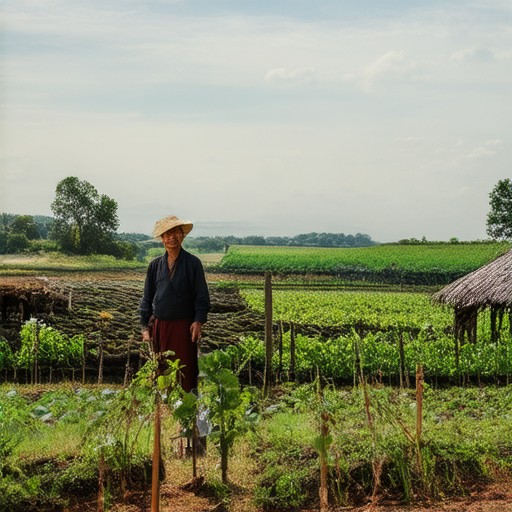
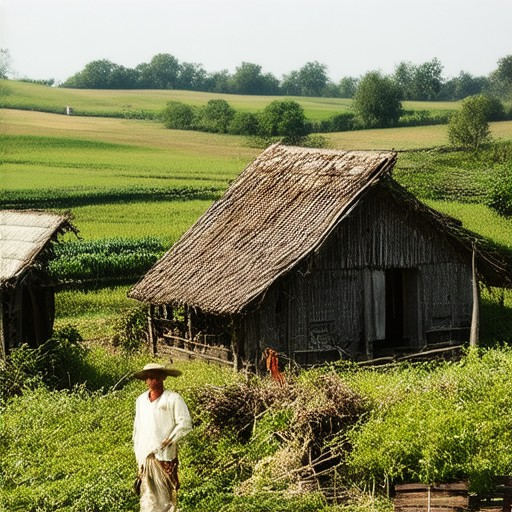
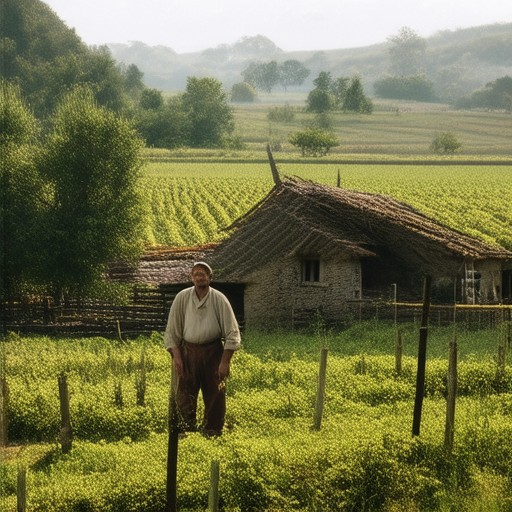

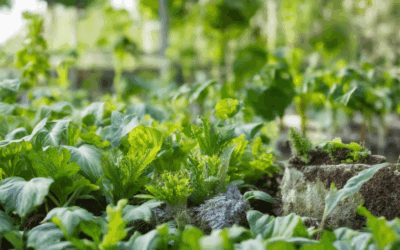
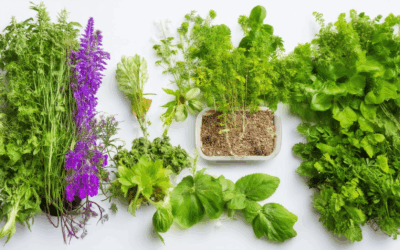
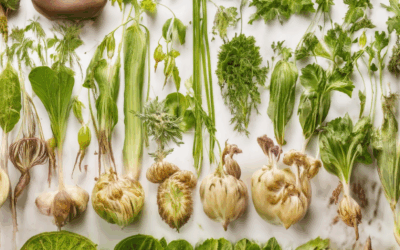
0 Comments